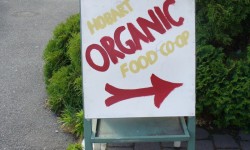One of the key challenges to eating healthy is doing so without breaking the household bank.
That’s because eating healthy means not only eating plenty of fruit and vegetables, it means choosing organic food. Add food inflation to the mix and it’s easy to conclude that you can either spend smart or eat healthy – not both.
Which Organics Are Worth The Cost?
The starting point for managing how much we spend on organics is knowing which organic items to buy.
The Environmental Working Group keeps tabs on which fruit and vegetables tend to have the highest pesticide residue and, therefore, should be purchased as organics and which ones are probably fine to buy as non-organics.
Finding Elusive Organic Food Discounts
The next step is to look for deals on organics, which often seems about as easy as spotting the Loch Ness Monster.
Amazon sells lots of organic products. Their regular prices are often better than what you’ll find at your grocery story, and they usually have some products on sale. If you order $25 worth of items at a time, shipping is free.
Whole Foods usually has quite a few printable coupons available for various organic products.
You can also get coupons directly from organic food companies, such as the ones listed below, but they often require you to join their e-mail list.
Organic Dairy and Seafood
Consumer Reports recommends buying all dairy products as organics (the least expensive organic milk we’ve found is at Trader Joe’s, which sells it for $5.99 a gallon), but it says you can take a pass on organic seafood. It explains that the lack of organic certification standards for seafood means that seafood labeled as organic may not be any freer of contaminants than non-organic seafood. Nice, huh?
However, when buying seafood, it is possible to choose sustainable fish – that is, species that are not being over-fished.
What other ideas do you have for keeping the cost of organics under control?
Know someone else who would benefit from this article? Why not forward a link? And if you haven’t done so already, you can subscribe to this blog by clicking here. Two or three times a week, you’ll receive ideas and encouragement for using money well.



Thanks for referring me to this article. I agree mostly. I still think this conversation is limited in that it only considers individual budgets/personal health…Most coupons support large companies that, good for them, sell organic products. But what about local farmers who can’t afford to offer coupons and usually work multiple jobs just to keep farming? (I’m not a farmer btw). This issue is complicated. I just think an ethical consideration of budgeting should consider more than personal bank accounts/personal diets, though those should be near the top of the list as well. I’m concerned about what goes into me and my family as well as how farmers around the world are paid (or not), the extreme health risks they face and what is put into the earth to give us such a vast and cheap supply of food…
Finally, I wish it weren’t so, but I find most coupons point us toward “snacky” or processed food–not the basics like milk, meat, veggies etc. I’d love to know of exceptions. Even in light of my criticisms–good article and great website! Thanks!
Matt, Great article and GREAT references! I have often wondered just how much organics I need to buy. EWG gave me a strong understanding. So thanks and keep up the good work!
We love Trader Joe’s. Their prices are pretty low for the quality you get. Even the non-organic dairy products are usually rBST-free. So, you aren’t feeding your family a buch of hormones and the prices are lower than supermarket dairy.
Ranell – Mmm, those hydrolyzed chicken feathers sure sound good! Thanks for the suggestion to look for wild caught Alaska salmon, and for the tip about canned salmon. I know how much you’ve studied food and other health issues, so I trust your recommendations. Thanks for sharing them!
THANKS for all of the URL’s to the coupons. I just signed up for a bunch. This will save me money – appreciate it!
Matt, I thought this was insightful – so now we look for WILD-CAUGHT Alaska salmon and don’t eat anything that says ‘Atlantic’ or that isn’t labeled.
What the fisheries expert won’t eat: farmed salmon
David Carpenter, M.D., director of the Institute for Health and the Environment at the University at Albany, published a major study in the journal Science on contamination in fish.
The problem: Nature didn’t intend for salmon to be crammed into pens and fed soy, poultry litter and hydrolyzed chicken feathers. As a result, farmed salmon is lower in vitamin D and higher in contaminants, including carcinogens, PCBs, brominated flame retardants, and pesticides such as dioxin and DDT. According to Carpenter, the most contaminated fish come from Northern Europe, which can be found on American menus. “You could eat one of these salmon dinners every five months without increasing your risk of cancer,” says Carpenter, whose 2004 fish contamination study got broad media attention. “It’s that bad.” Preliminary science has also linked DDT to diabetes and obesity, but some nutritionists believe the benefits of omega-3s outweigh the risks. There is also concern about the high level of antibiotics and pesticides used to treat these fish. When you eat farmed salmon, you get dosed with the same drugs and chemicals.
The solution: Switch to wild-caught Alaska salmon. If the package says fresh Atlantic, it’s farmed. There are no commercial fisheries left for wild Atlantic salmon.
Budget tip: Canned salmon, almost exclusively from wild catch, can be found for as little as $3 a can.
Could eating fish help boost your flu immunity ?